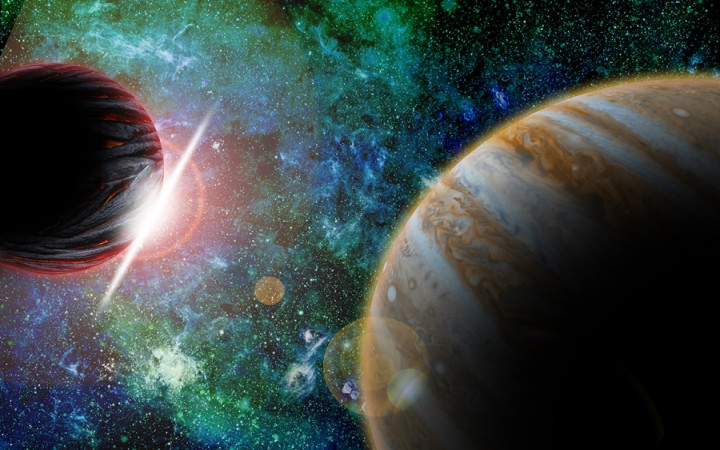What's your favorite thing to do on a warm evening? In Wonderopolis, we love to relax on a blanket under the stars and WONDER, “What's out there?" We may count the stars or even scan the skies for shooting stars.
Many kids who have done the same thing often WONDER about our place in the universe. Are we alone? Are there other worlds out there? If so, how many are there? Is there any other intelligent life in any of those worlds?
These questions and more have fascinated astronomers, philosophers, and all sorts of other scientists over the ages. We know the most about our planet, Earth. That makes sense, right? After all, it is our home.
We've also learned a lot about our neighbors, including the Sun, the Moon, and the other planets, including Mercury, Venus, Mars, Jupiter, Saturn, Uranus, and Neptune. We know that these objects and others, such as former planet Pluto, revolve around the Sun and form our solar system.
Our solar system is just one of many solar systems that form our galaxy, the Milky Way. And the Milky Way is just one galaxy in our universe. Scientists estimate that there are hundreds of billions of galaxies throughout our universe.
When you think about them, the numbers are staggering, and scientists believe the possibilities are endless. More and more, scientists are beginning to believe that we are not alone. Of course, there is no proof that life exists elsewhere, but experts are learning more every day about the probabilities that it might.
Scientists believe that Earth is the only planet in our solar system that supports life, at least as we know it on Earth. For human beings to live and thrive, conditions have to be “just right," like they are on Earth. For example, humans could never survive the overwhelming heat on Mercury or the frigid cold on Neptune. Other conditions, such as poisonous gases and lack of water, also prevent other planets from being good hosts for life.
Armed with this knowledge, scientists have long believed that life might be found elsewhere in the universe on planets similar to Earth orbiting other stars. For example, if we could find another star with a planetary system orbiting it that had a planet similar in size and location to Earth, perhaps it, too, would have those “just right" conditions for life as we know it.
Many of these theories predated our ability to test them. With recent developments in technology, however, scientists are looking farther and farther into space…and learning some interesting things!
In 2009, scientists launched the Kepler telescope specifically to look for planets around other stars. Scientists have just started to publish their findings from the data obtained from the Kepler telescope's many observations.
According to one recently-released study, some scientists now believe that there could be as many as 40 billion planets like Earth in the Milky Way galaxy. Can you imagine that? Scientists are excited by the possibilities. Out of those 40 billion Earth-like planets, how many other worlds might there be that support life?
These same scientists have concluded that planets like Earth are relatively common throughout the Milky Way galaxy. In fact, the nearest one could be as close as about 12 light years away. Of course, that's equivalent to about 72 trillion miles, so humans probably won't be visiting there any time soon.
Based upon data from the Kepler telescope, scientists now believe that almost nine billion stars in the Milky Way galaxy have planets about the size of Earth with surface temperatures that would support life as we know it. If you extrapolate those numbers to other galaxies, it's possible that the entire universe could contain many more billions of Earth-like planets capable of supporting life!




